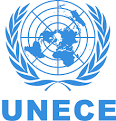Chemycal has been acquired by 3E
Learn MoreChemycal has been acquired by 3E
Learn MoreDiscover how Chemycal PRO helps you boosting your regulatory monitoring:

Air pollution kills 7 million people every year according to WHO data. It is by far the world’s largest single environmental health risk and a leading cause of death by cancer. Air pollution is also closely linked to climate change and is a major cause of environmental degradation, threatening almost two-thirds of Europe’s ecosystems. This makes air pollution a critical barrier for sustainable development.
Monday 7 October will mark an important step in international efforts to address this challenge with the entry into force of amendments to the Gothenburg Protocol, adopted in 2012, in 18 countries in Europe and North America: Bulgaria, Canada, Croatia, Cyprus, Czechia, Finland, Germany, Latvia, Luxembourg, the Netherlands, Portugal, Romania, Slovakia, Spain, Sweden, Switzerland, the United Kingdom and USA, and the EU. Further UNECE member States are expected to ratify the Protocol in the coming months.
The amended Protocol, negotiated under the UNECE Convention on Long-range Transboundary Air Pollution (Air Convention), establishes legally binding emissions reduction commitments for 2020 and beyond for the major air pollutants: sulphur dioxide (SO2), Nitrogen oxides (NOx), ammonia (NH3), volatile organic compounds (VOCs) and fine Particulate Matter (PM2.5).
The amended Protocol is already supporting action for clean air in a number of countries. For EU member states, 2020 and 2030 reduction commitments under the revised National Emission Ceilings Directive from 2016 (NEC Directive), together with reporting mechanisms used to monitor countries’ progress, are based on the amended Gothenburg Protocol.
UNECE Executive Secretary Olga Algayerova stated: “The Air Convention, which this year celebrates 40 years of successful cooperation to tackle air pollution, remains the only regional policy solution of its kind anywhere in the world. UNECE, together with Parties to the Convention, will continue to promote ratification and implementation of the amended Gothenburg Protocol by other countries in the region, particularly in Eastern and South-Eastern Europe, the Caucasus and Central Asia, as well as cooperation with other regions.”
CONTINUE READING ON www.unece.org
2013 © MyChemicalMonitoring. ALL Rights Reserved. About Us | Terms and Conditions